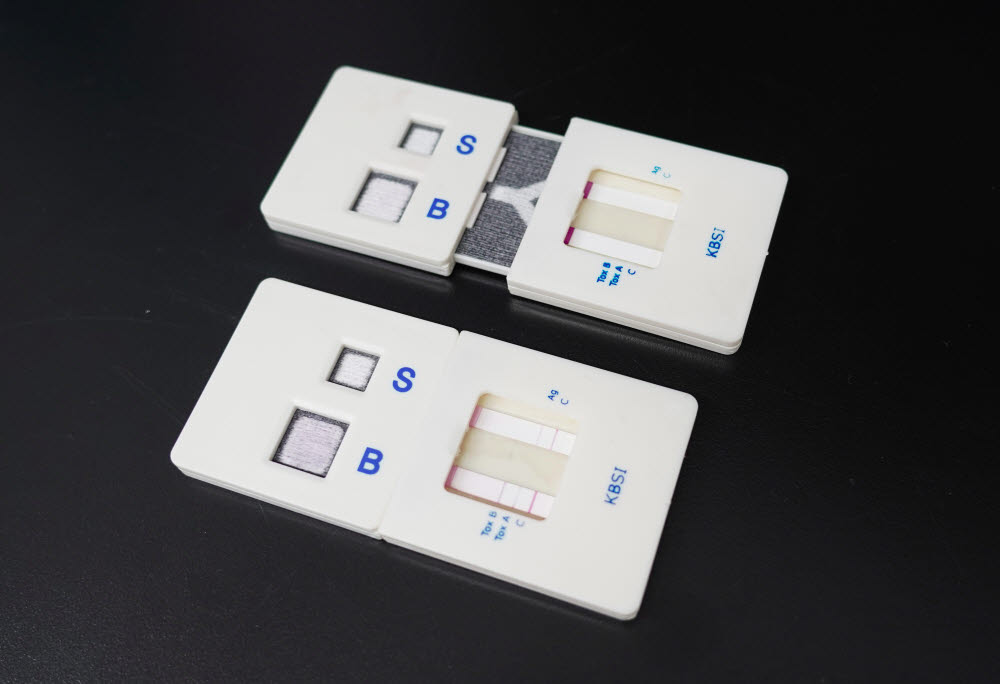The Korea Basic Science Institute (KBSI, Director Shin Hyung-Sik) is a researcher (Vice-President) of the Materials Analysis Research Department, Choi Jong-soon, who can quickly detect’Clostridioides difficile’ (C. It announced on the 15th that it has developed a detection kit.
C. difficile is an intestinal bacterium that cannot be treated with antibiotics. When infected, it causes fever, diarrhea, and abdominal pain. In severe cases, it can lead to death with fulminant gastroenteritis, toxic giant colon, and sepsis.
C. difficile does not have a clear treatment, so early diagnosis is needed to block the spread of infection. However, the current test method takes a lot of time as it is carried out in three steps, including the patient’s feces C. difficile antigen test, toxin test, and genetic test. The test sensitivity was very low, making it difficult to diagnose accurately and quickly.

A paper-based multi-detection kit (mPAD) that applies high-sensitivity multi-analysis technology that quickly detects C.Difficile in a joint research with Dal-seok Kim, a researcher at the Department of Material Analysis and Do-Kyung Han, and Joseph Kwon, a researcher at the Department of Biochemical Analysis. Developed.
It can be detected within 10 minutes with a single analysis, and even trace and low concentration samples can be detected within a maximum of 1 hour with high-sensitivity signal amplification. If a fecal sample of a patient suspected of C. difficile infection is dropped onto mPAD, it is possible to simultaneously visually check whether one C. difficile biomarker antigen (GDH) and two toxins (Toxin A·B) are detected.
The research team created an mPAD with a three-dimensional fluid passage by creating a hydrophilic and hydrophobic pattern on paper by wax printing and stacking it in five layers. When a fecal sample is dropped into the mPAD hole and water is dropped into another hole treated with reagent drying for signal amplification, the sample flows first along the fluid passage and then the reagent flows into it. The solutions react to gold nanoparticles on the surface of mPAD paper, and the measurement sensitivity is amplified due to the principle of metal precipitation, and color development is distinct.

The detection sensitivity of mPAD is 97%, the specificity is 88%, and the accuracy is 95%. It is made of paper, and the production cost is low and no additional equipment is required.
The KBSI research team performed mPAD design, fabrication, characterization, and analysis of the patient’s actual sample through mPAD, and the Chonbuk National University Medical School research team participated in the analysis of the patient’s actual sample through the current standard analysis method and evaluation of mPAD detection analysis.
The results of the study were the achievements of the KBSI biodisaster analysis technology development project, and were published on the 15th in the top-level academic journal in the field of analytical chemistry,’Biosensus and Bioelectronics’.
KBSI Dr. Joseph Kwon said, “This research is a case that shows the possibility of securing and localizing C. Difficile diagnosis source technology.” “Through research results, we provide an accurate and inexpensive C. Difficile diagnosis method that includes high-cost genetic tests,” said Dr. Joseph Kwon. It will be possible to replace the test method.”
Researcher Choi Jong-soon said, “A variety of research achievements are being drawn through the recent biodisaster analysis technology development project. We look forward to expanding it into a research project that can prepare countermeasures against novel viruses such as Corona 19 in the future.”
Daejeon = Reporter Kim Young-jun [email protected]
